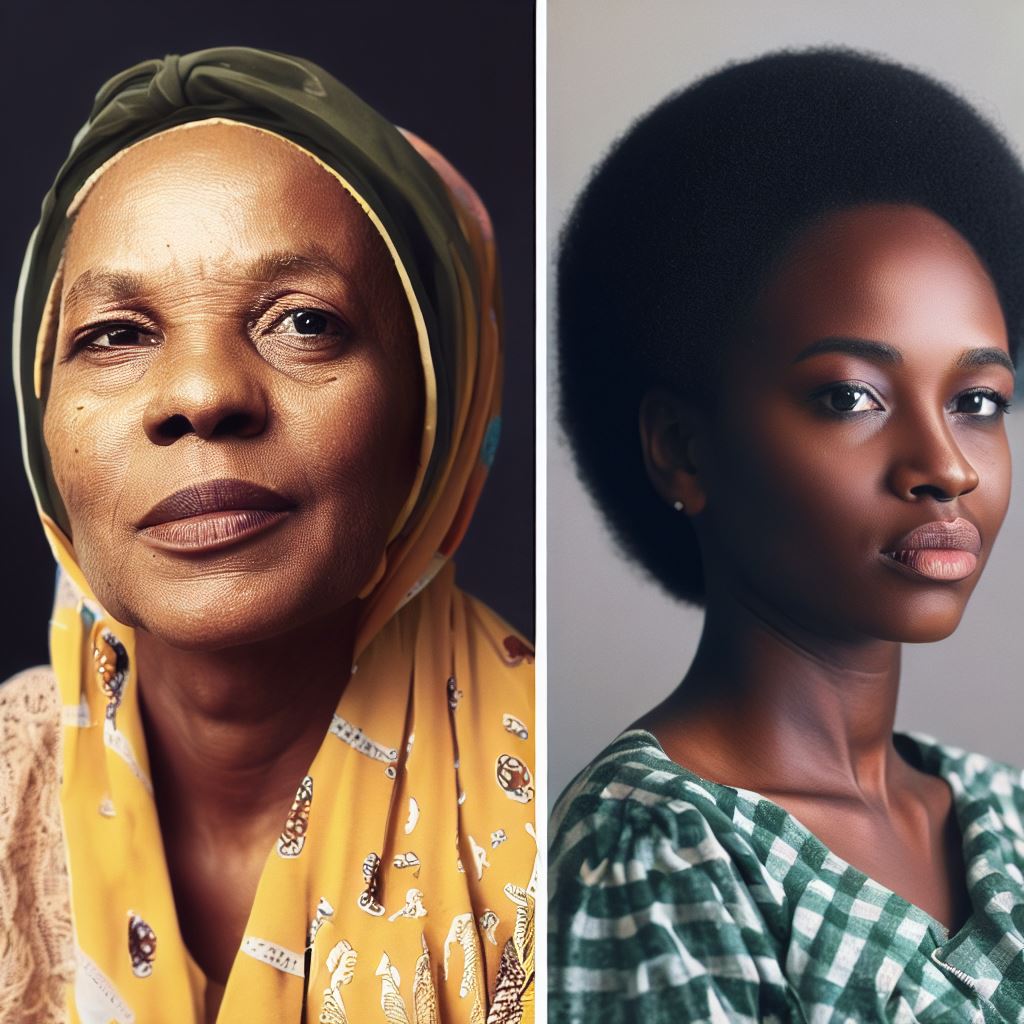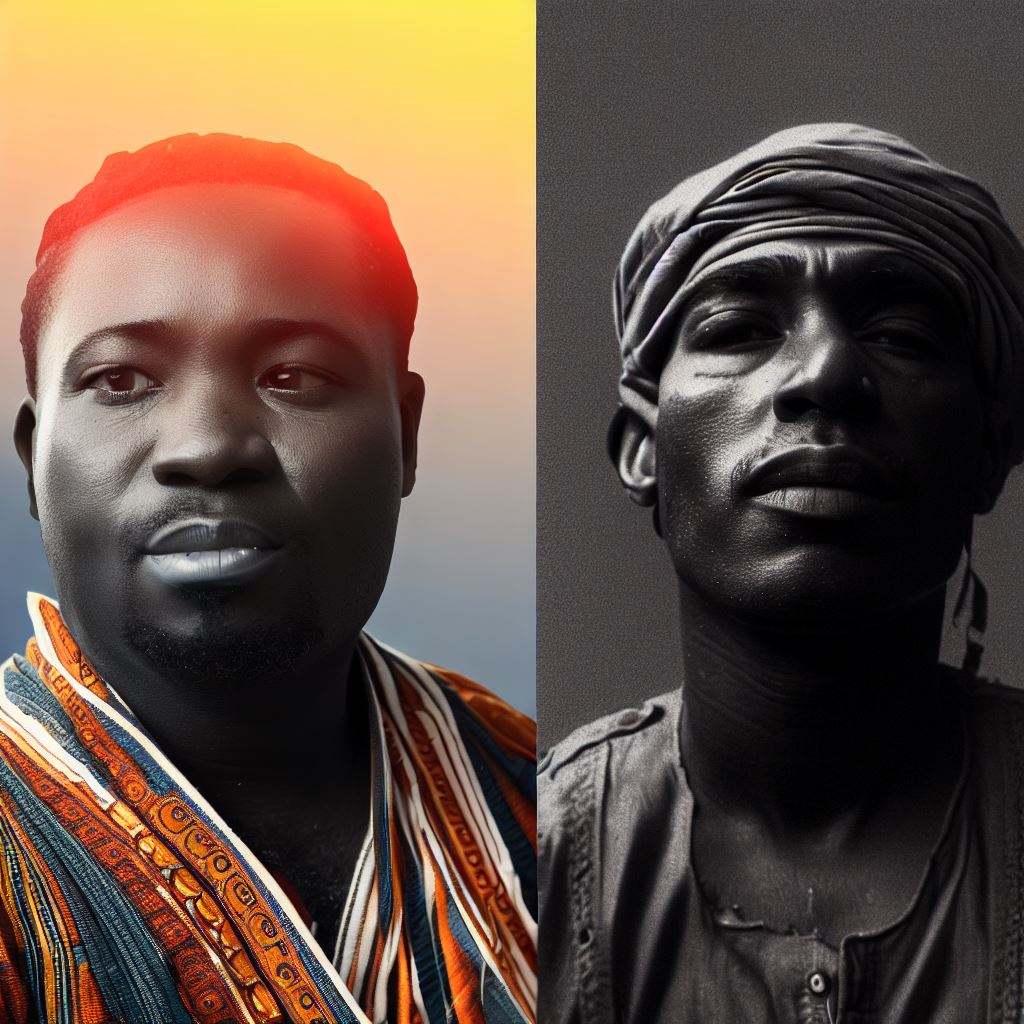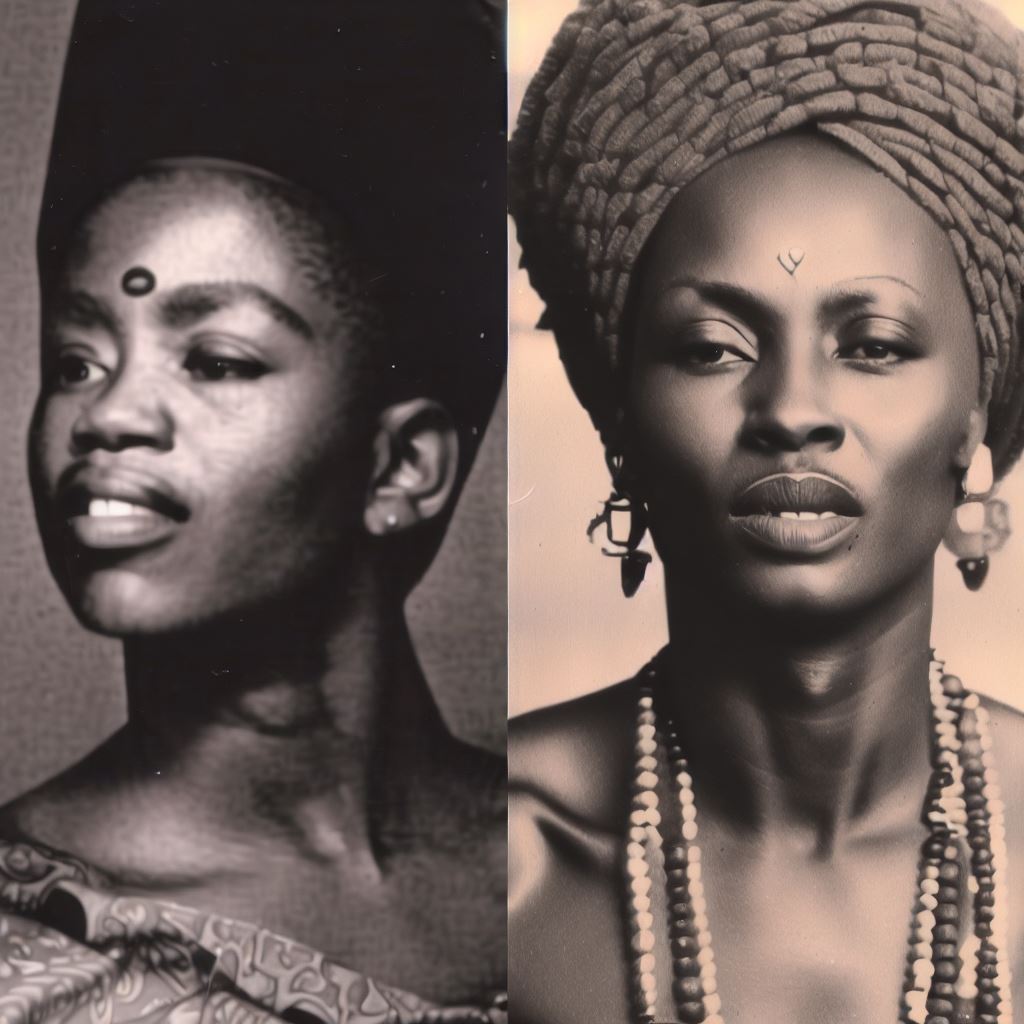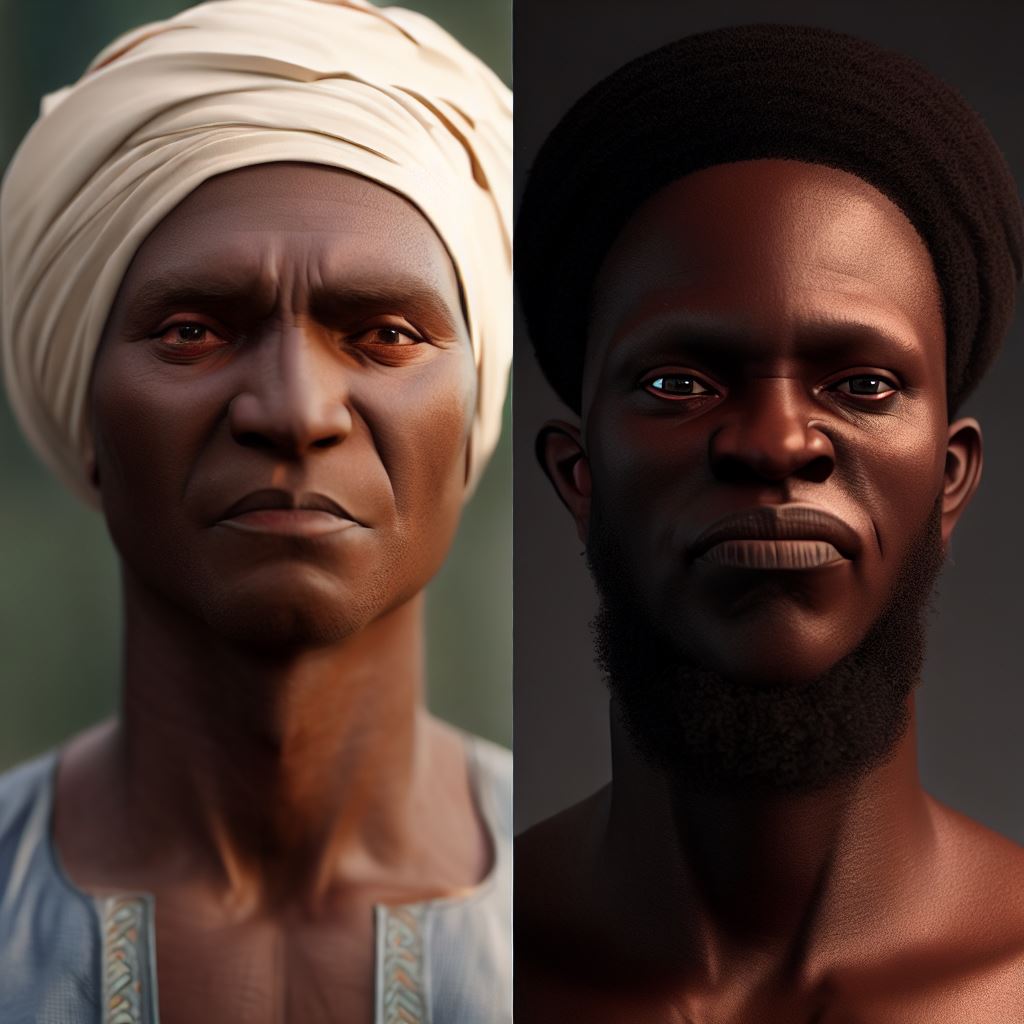Introduction
Let’s explore pioneering female film composers in Nigeria.
Film music plays a crucial role in Nigeria, contributing to its cultural significance and entertainment value.
Sadly, female film composers have long been overlooked and underestimated in Nigeria’s history.
In the vibrant tapestry of Nigeria’s film industry, a trailblazing cohort of women has emerged as unsung heroes, shaping the auditory landscape of cinematic storytelling.
While the spotlight often gravitates towards directors, actors, and screenwriters, the influence of female film composers cannot be underestimated.
Their compositions not only enrich the emotional resonance of films but also contribute to the cultural narrative of the nation.
This exploration delves into the lives, achievements, and indelible contributions of these pioneering women, shedding light on their remarkable journey in an industry where their voices have been both groundbreaking and transformative.
From captivating melodies to powerful symphonies, these composers have forged a legacy that transcends gender barriers, leaving an indomitable mark on the world of Nigerian cinema.
Join us on this captivating journey through the lives of Nigeria’s trailblazing female film composers, and discover the symphonic tales they’ve woven into the cinematic fabric of the nation.
The purpose of this blog post is to shed light on the pioneering female film composers in Nigeria.
Background of Nigerian film industry
Growth and development over the years
The Nigerian film industry, also known as Nollywood, has experienced significant growth and development over the years.
This industry has become the second-largest film industry in the world, behind only Bollywood in India.
Influence on African cinema
Nollywood has had a major influence on African cinema as a whole.
It has played a crucial role in shaping the cultural and social narratives of the continent.
Emergence of female filmmakers
Within this industry, there has been a notable emergence of female filmmakers who have made significant contributions.
These pioneering women have broken barriers and shattered societal expectations.
Through their work, they have not only contributed to the growth of Nollywood but have also inspired future generations.
One such area where female composers have made their mark is in film music.
Historically, film music in Nigeria was composed predominantly by male musicians.
However, with the advent of female composers, the industry has witnessed a diversification of talent.
These women have brought a unique perspective and a fresh approach to film composition.
One of the most renowned female film composers in Nigeria is Eva Alordiah.
Eva is a multi-talented artist who has successfully ventured into various fields, including music production.
Her contributions to the Nigerian film industry have been highly regarded and acclaimed.
She has composed music for several films, infusing them with a distinct and captivating sound.
Another prominent female film composer in Nigeria is Silvia Oluchi.
She is a gifted musician and composer who has worked on numerous Nollywood productions.
Her ability to create emotional and evocative scores has earned her recognition and respect within the industry.
The emergence of these talented female film composers has opened up new possibilities for storytelling in Nigerian cinema.
Their music adds depth, emotion, and a unique dimension to the films they are involved in.
In short, while Nollywood has been instrumental in shaping African cinema, it is the pioneering female film composers who have added a new layer of creativity to this industry in Nigeria.
These women have defied expectations and showcased their immense talent and skill.
They have undoubtedly left an indelible mark on the Nigerian film industry, inspiring future generations of filmmakers and composers alike.
Read: The Changing Trends in Nigerian Film Music
Overview of the role of film composers
Significance of film scores
Film composers play a crucial role in enhancing the overall cinematic experience for viewers.
They carefully craft music that complements and enhances the scenes, characters, emotions, and narratives depicted in films.
Through their compositions, they add depth, emotion, and richness to the storytelling process.
Film scores have the power to evoke strong emotions and create a lasting impact on the audience.
They help set the mood, intensify dramatic moments, and bring out the underlying emotions in a scene.
It is through the film score that the characters’ feelings and motivations are amplified, making it an integral part of the filmmaking process.
Challenges faced by composers in Nigeria
Composers in Nigeria face numerous challenges in their pursuit of creating memorable film scores.
Firstly, there is limited access to resources and technology necessary for composing music.
Many composers struggle with outdated equipment and lack of studio space, hindering their ability to produce high-quality compositions.
Secondly, there is a lack of financial support for composers.
Funding for film projects in Nigeria is often scarce, leaving composers with limited budgets to work with.
This makes it difficult for them to create music that meets international standards and compete on a global level.
Furthermore, composers have limited opportunities for collaboration and networking within the industry.
This lack of support and recognition creates a barrier for composers to showcase their talents and have their work appreciated.
Lack of representation for female composers
Female composers in Nigeria face additional challenges due to the lack of representation and gender biases within the industry.
Historically, the field of film composition has been predominantly male-dominated.
This lack of diversity has resulted in a limited platform for female composers to showcase their skills and talents.
Women composers often have to break through societal stereotypes and cultural expectations that discourage them from pursuing a career in music composition.
The lack of role models and mentors further exacerbates the problem, making it difficult for aspiring female composers to find the motivation and support needed to succeed.
Despite these challenges, there are pioneering female film composers in Nigeria who have been making significant contributions to the industry.
Their music is a testament to their talent and determination, breaking down barriers and inspiring a new generation of female composers.
In fact, film composers play a vital role in the filmmaking process, with their music adding depth, emotion, and impact to films.
In Nigeria, composers face challenges such as limited resources, financial constraints, and lack of representation.
Female composers, in particular, face additional barriers due to gender biases and societal expectations.
However, despite these challenges, female composers are making their mark on the industry and breaking down barriers for future generations.
Their contributions are invaluable, and it is essential to recognize and support their work to promote diversity and creativity within the field of film composition.
Read: Technology’s Role in Nigerian Film Composing
Early pioneers of female film composers in Nigeria
Name and brief introduction of the first female film composer
Theresa Onuorah, the first female film composer in Nigeria, broke barriers and paved the way for future female composers in the industry.
Accomplishments and notable works
Theresa Onuorah composed the iconic soundtrack for the movie “Black Goddess” in 1978, which gained international recognition and critical acclaim.
She also composed the music for other notable Nigerian films, including “Aba Riots” and “Mirror in the Sun.”
Onuorah’s compositions were known for their unique fusion of traditional Nigerian music with Western influences, creating a distinct sound that resonated with audiences.
Challenges faced in a male-dominated industry
Being one of the few female film composers at the time, Onuorah faced numerous challenges and prejudices.
Male composers and filmmakers often dismissed her talent, doubting her ability to create impactful soundtracks.
Onuorah had to constantly prove herself, working twice as hard to gain recognition in a field dominated by men.
Limited opportunities and lack of support further hindered the progression of female composers in the industry.
Sexism and discrimination were prevalent, discouraging women from pursuing their passion for composing in the film industry.
Despite these challenges, Onuorah’s determination and talent enabled her to thrive and inspire future generations of female film composers in Nigeria.
In essence, Theresa Onuorah was a trailblazer and the first female film composer in Nigeria.
Her accomplishments and unforgettable compositions have left a lasting impact on the industry.
She faced numerous challenges in the male-dominated field but overcame them through perseverance and talent.
Onuorah’s success opened doors for other women to pursue their dreams of becoming film composers, thus diversifying and enriching the Nigerian film industry.
Read: Nigerian Film Composers: Challenges and Triumphs

Success stories of contemporary female film composers in Nigeria
These talented female film composers have made significant contributions to the Nigerian film industry, elevating the art of film music and paving the way for future generations.
Motivated by their passion for storytelling and music, they have created unforgettable soundtracks that enhance the overall cinematic experience.
Profiles of prominent female film composers
- Nneka Mbanu: Known for her versatile compositions and ability to evoke emotions through music.
- Amaka Ede: Renowned for her experimental style that fuses traditional Nigerian sounds with modern electronic music.
- Chioma Nwosu: Celebrated for her expertise in crafting captivating musical scores that enhance storytelling.
Notable awards and recognition received
- Nneka Mbanu, with her versatile compositions, effortlessly captures the essence of each film she works on.
- Her ability to evoke emotions through music has earned her critical acclaim and numerous awards, including the Best Original Score at the Nigerian Film Awards for her remarkable work in “The Journey.”
- Amaka Ede is widely recognized for her groundbreaking style that seamlessly combines traditional Nigerian sounds with modern electronic music.
Her experimentation has resulted in unique and captivating soundtracks, earning her the prestigious African Movie Academy Award for Best Original Soundtrack for “Echoes of the Past.”
Chioma Nwosu’s expertise lies in crafting musical scores that enhance storytelling.
Her collaborations with filmmakers have allowed her to experiment with non-linear musical narratives, pushing the boundaries of film composition.
Her outstanding work was acknowledged with the Golden Horn Award for Best Original Score at the Africa Magic Viewers’ Choice Awards.
Contributions to the evolution of Nigerian film music
- Apart from their individual achievements, these female film composers have collectively contributed to the evolution of Nigerian film music.
- Nneka Mbanu, in particular, has pioneered the use of traditional Nigerian musical instruments in film scores, preserving cultural heritage and adding a distinct Nigerian flavor to the industry.
- Amaka Ede’s introduction of electronic music production techniques has brought a fresh and modern sound to Nigerian cinema, appealing to a wider audience and showcasing the country’s musical diversity.
Meanwhile, Chioma Nwosu’s collaborations with filmmakers have allowed her to experiment with unconventional approaches, expanding the possibilities of film composition in Nigeria.
In general, the success stories of these contemporary female film composers in Nigeria serve as an inspiration for aspiring musicians and filmmakers alike.
Their passion, talent, and commitment to their craft have not only earned them recognition but have also contributed to the overall growth and evolution of Nigerian film music.
As the industry continues to flourish, it is crucial to celebrate these pioneering women and their invaluable contributions.
Read: The Evolution of Sound Effects Editing in Nigeria
Publish Your Professional Profile, Business or Brand
Showcase your expertise, gain trust, and boost visibility instantly on Professions.ng.
Publish NowImpact and Influence of Female Film Composers in Nigeria
Representation and Inspiration for Aspiring Female Composers
Female film composers in Nigeria have become strong representations of artistic prowess and talent.
Their incredible work serves as an inspiration for aspiring female composers, giving them role models to look up to.
By breaking barriers and succeeding in a predominantly male-dominated field, these women showcase the endless possibilities for female composers.
Seeing fellow women excel in film composition allows aspiring female composers to believe in their own capabilities.
Through their artistry, these pioneers encourage young girls to explore their musical passions, fostering a new generation of talent.
Transformation of the Nigerian Film Industry
The rise of female film composers has contributed to the transformation of the Nigerian film industry.
Their unique perspectives and musical styles have brought diversity and richness to film soundtracks.
Female composers infuse their compositions with cultural nuances, elevating the authenticity and depth of Nigerian films.
Their innovative approach to scoring has helped Nigerian films gain recognition on the international stage.
By integrating different genres and experimenting with sounds, female composers have expanded the boundaries of Nigerian cinema.
Advancement of Gender Equality in the Creative Field
The emergence of female film composers in Nigeria has advanced gender equality in the creative industry.
They have shattered stereotypes and proved that gender does not define one’s ability to compose impactful music.
Female composers challenge the conventional notion that only male composers can effectively score films.
Their growing presence in the industry showcases the need for equal opportunities and recognition regardless of gender.
As more female composers achieve success, the creative field becomes an inclusive and welcoming space for all.
In brief, the impact and influence of female film composers in Nigeria cannot be overstated.
They serve as representations and inspirations for aspiring female composers, transforming the Nigerian film industry with their unique perspectives, and advancing gender equality in the creative field.
Through their groundbreaking work, these pioneering women have left an indelible mark on the Nigerian film industry, inspiring generations to come.
Challenges and barriers still faced by female film composers in Nigeria
Gender bias and discrimination
Female film composers in Nigeria continue to face gender bias and discrimination in the industry.
They often struggle to be taken seriously and earn the same recognition as their male counterparts.
There is a prevailing notion that women are not as skilled or capable in composing music for films.
This bias limits their opportunities and hinders their progress in the field.
Female composers often have to work twice as hard to prove their talent and overcome stereotypes.
Limited opportunities and funding
Female film composers in Nigeria also face limited opportunities and funding compared to men.
There is a lack of recognition and support for their work, making it harder for them to secure projects.
Most funding and job offers in the industry tend to favor male composers, leaving women at a disadvantage.
The scarcity of opportunities makes it challenging for them to gain experience and build their careers.
This inequality in access to resources further contributes to the underrepresentation of female composers.
Support systems and initiatives addressing the issue
Despite these challenges, there are support systems and initiatives that aim to address the gender disparity.
Organizations such as Women in Film and Music Nigeria (WFMN) provide a platform for female composers.
WFMN holds workshops, networking events, and mentorship programs to empower and promote women in the field.
These initiatives create awareness about the talent and potential of female film composers.
They also advocate for equal opportunities and strive to break down the barriers faced by women in the industry.
In review, female film composers in Nigeria still encounter numerous challenges and barriers.
Gender bias and discrimination persist, limiting their opportunities for professional growth. The lack of funding and resources further impedes their progress in the field.
Nevertheless, there are support systems and initiatives such as WFMN that aim to address these issues and promote equality.
With continued efforts and recognition, female composers can overcome these challenges and contribute their unique talents to the Nigerian film industry.
Conclusion
Recap of the pioneering female film composers in Nigeria: These talented women have broken barriers and paved the way for future generations.
Acknowledgment of their contributions: Their musical compositions have enriched Nigerian cinema and elevated storytelling.
Hope for increased recognition and opportunities for future generations: It is crucial for society to acknowledge and support female composers, ensuring equal opportunities and diversity in the film industry.




